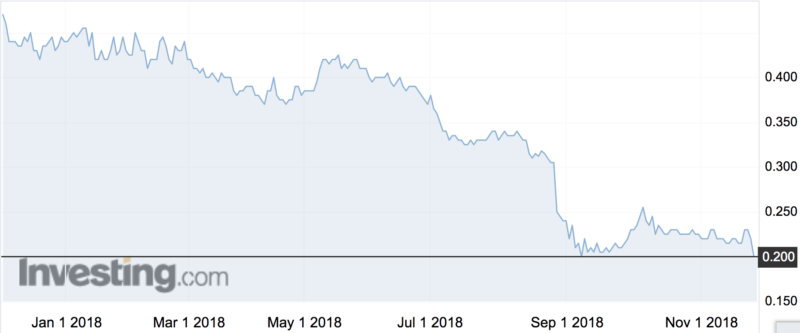Pro-Pac Packaging chief packs his bags after drought bites into bottom line
News
Grant Harrod has quit his job as chief of packaging outfit Pro-Pac Packaging a day after it revealed drought conditions and high costs were laying waste to the bottom line.
Yesterday, its share price (ASX:PPG) dropped 18 per cent after the news of challenging drought conditions, as Pro-Pac makes and sells agricultural packaging like grain bags, and high raw material costs.
Today, Mr Harrod announced he had resigned as CEO and will leave once his replacement has been found.
“In the meantime I will continue to lead the company and oversee the implementation of its growth strategy,” he said.
On Monday, Mr Harrod told investors that the company was revising its 2019 financial year earnings before interest, tax, depreciation and amortisation (EBITDA) “before significant items” to between $30 million and $33m.
EBITDA is an accounting figure commonly used in financial reports but is not generally a true reflection of a company’s earnings as it fails to take into account mitigating factors.

Drought’s impact is far-reaching
Mr Harrod said the first half of fiscal 2019 included the key agricultural selling period.
“The drought continues to impact sales volumes of grain bags and silage film relative to internal forecasts and previous market guidance,” he said.
“Whilst the season will not conclude until January, sales are tracking below our expectations as growers are either not planting or planting less.”
They had also experienced continually rising prices for raw materials and “adverse foreign exchange and energy costs”.
“Although we have made some progress in passing on these cost increases to customers, we do not expect margins to fully recover in the short-term, particularly in our industrial and flexible packaging businesses.”
Pro-Pac, which works in Australia, New Zealand and Canada and is chaired by ex-Australia Post boss Ahmed Fahour, reported a $5.1 million loss for the 2018 financial year, after posting a $5m profit in 2017.
Revenue was up by 62 per cent to $372 million, but expenses rose by 65 per cent to $366 million and acquisition, rationalisation, relocation and restructuring costs rose by 1,177pc to $11.7m.
It had $3.2m in the bank, a figure that was down 73 per cent on the prior year.
Mr Harrod, formerly a CEO of LJ Hooker, was paid a salary of $562,270 in 2018.